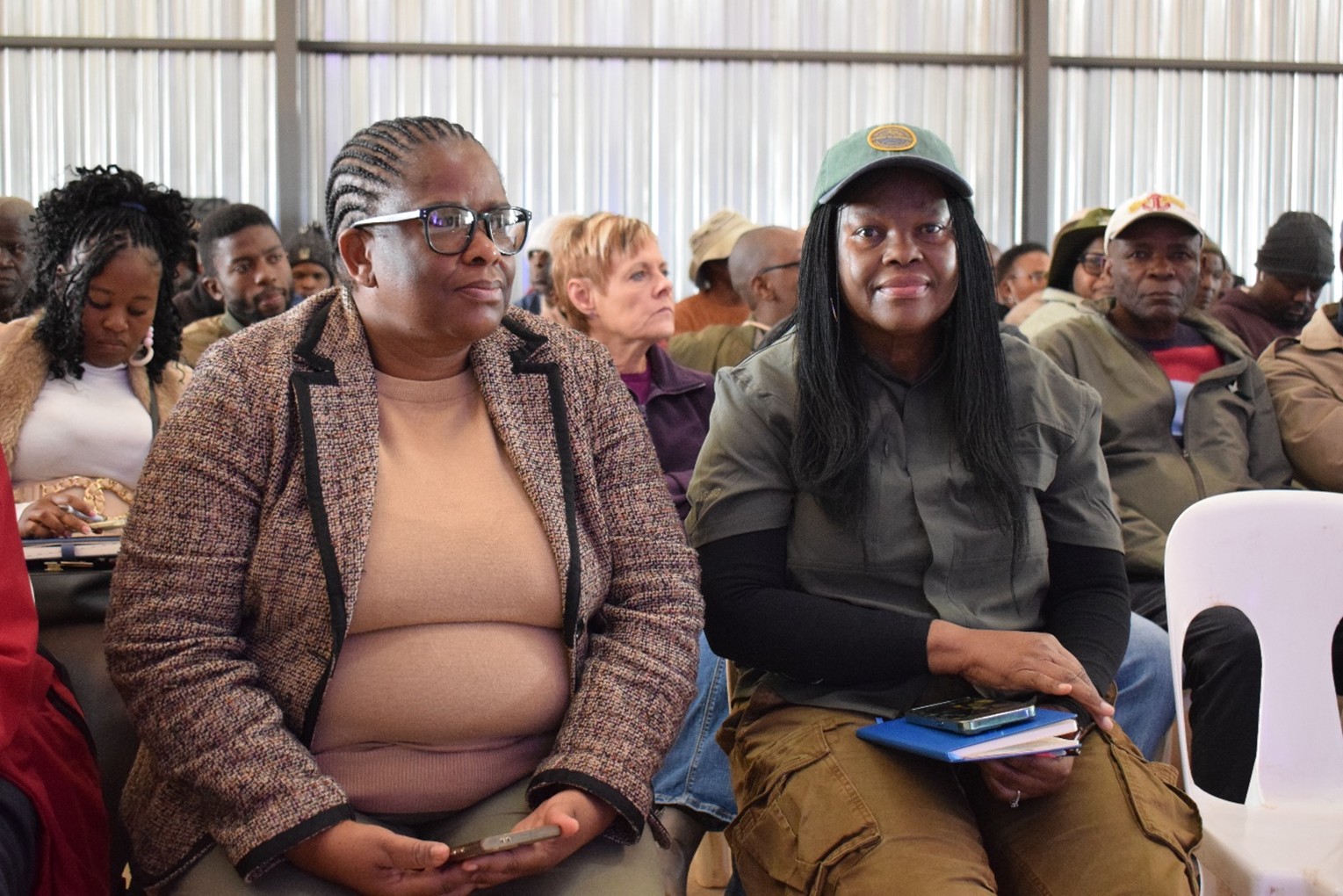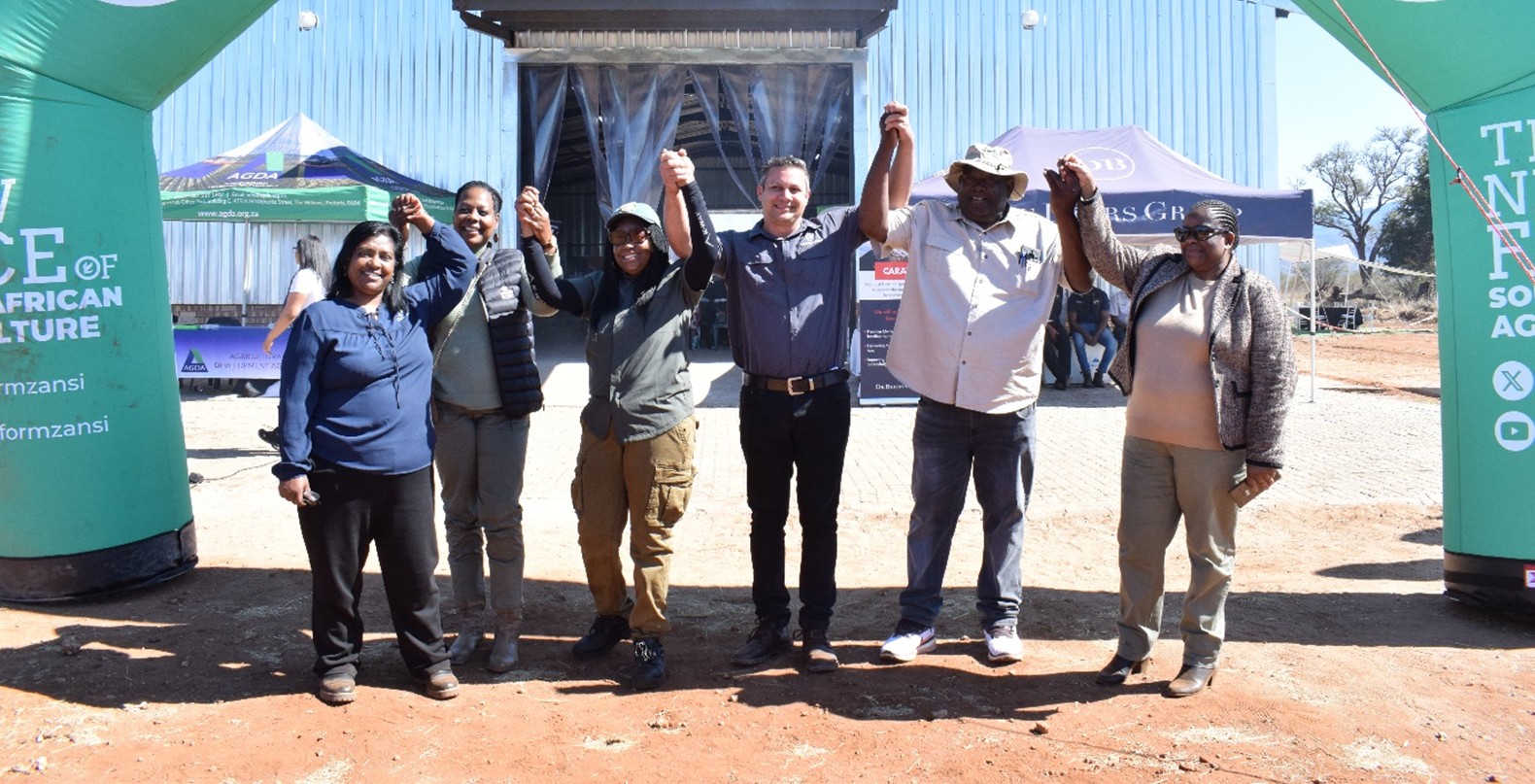By Zwii Maphiri and Maphuti Machabaphala

MEC Nakedi Kekana officiates Limpopo Market Day in initiated by Food for Mzansi to help uplift the rural community held at Avon in Senwabarwana, under the Capricorn East Agro-Ecological Zone,
The MEC, together with De Beers Group, AGDA, Land Bank, and Food For Mzansi engaged in a key rural economic stimulation initiative aimed at uplifting the farmers and rural communities within the Blouberg area.
The event aimed at empowering farmers with knowledge, market access, and support, highlighted how agriculture, particularly potato production, continues to be a key driver of inclusive economic growth in Limpopo.
Agriculture remains one of the most resilient sectors in South Africa, contributing positively to the GDP and job creation. In Limpopo, it’s not just about economics – it’s a way of life and a pathway to transformation. Nowhere is this more evident than in the Capricorn District, where the Potato Belt Development Programme, launched in 2015, has changed the game.
Since its inception, 742 hectares have been developed for potato farming in the district, with R140 million invested into infrastructure like irrigation and pack houses. The Blouberg area alone has seen eight projects supported, creating over 160 permanent jobs and 4,500 seasonal jobs annually. These efforts generate around R399 million in revenue each year.
The success of this development programme is built on partnerships. LDARD, Potato South Africa, De Beers Venetia Mine, and financial institution like Land Bank and PEPSICO have all played a role.
De Beers Venetia Mine, AGDA and LDARD are also co-funding a new Agri Services Hub for the Blouberg farmers and Cooperatives, offering mechanisation, training, four-year rotation cycle support, and post-harvest services to name a few. This comes as strategic response to some of the most pressing needs rural farmers are faced with, and will focus on strengthening local cooperatives, reduce production costs, and improve yields – ultimately putting more income into farmers’ hands. But beyond economics, the hub represents Empowerment: Farmers taking ownership of their value chain, with infrastructure and partnerships to back them.
During her keynote address, MEC Nakedi Kekana mentioned that regardless of the challenges related to limited access to mechanised tools, informal market dependency, and access to financial support, the ongoing collaborations and shared commitments will overcome these hurdles and scale success.
This new Agri Services Hub for the Blouberg farmers is a powerful example of how partnerships, infrastructure, and farmer empowerment can turn rural potential into real progress – creating lasting impact for generations to come, said MEC Kekana.



